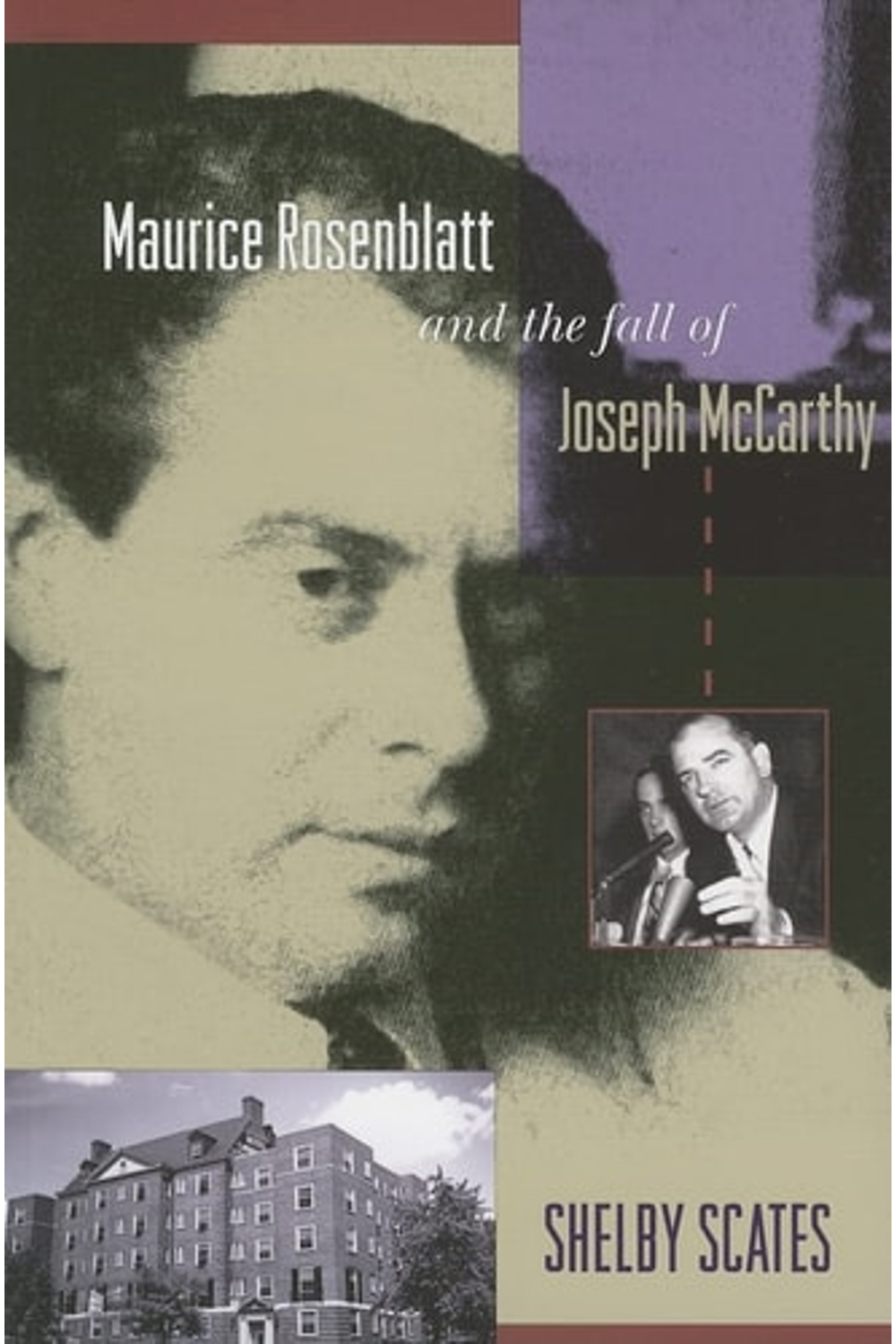Dive into a pivotal moment in American history with Shelby Scates’ “Maurice Rosenblatt and the Fall of Joseph McCarthy.” This compelling book unveils the unsung story of Maurice Rosenblatt, a Washington insider who masterminded the strategies that led to Senator Joseph McCarthy’s downfall. While McCarthy’s name evokes the chilling era of the Red Scare, Scates reveals the crucial role Rosenblatt played in organizing opposition to McCarthy’s reckless accusations and political maneuvering. Scates meticulously reconstructs the period, drawing upon previously unreleased transcripts and personal accounts to paint a vivid picture of the political climate. Learn how Rosenblatt, operating from a discreet headquarters, orchestrated a campaign to expose McCarthy’s tactics and build support for his censure. Discover the unlikely alliance formed with Senator Ralph Flanders and the conservative establishment, proving that strategic opposition can triumph over extremism. This isn’t just a biography; it’s a gripping account of political intrigue and a testament to the power of individual courage in the face of injustice. Explore the strategies, the risks, and the ultimate victory that helped end a dark chapter in American history. Perfect for readers interested in Cold War history, political biographies, and the fight for civil liberties.
Maurice Rosenblatt and the Fall of Joseph McCarthy
22,77 $
In stock
Maurice Rosenblatt was one of the principal behind-the-scenes engineers of the 1954 overthrow of Senator Joseph McCarthy, the rabidly anti-Communist chairman of the Senate Permanent Subcommittee on Investigations. Veteran journalist Shelby Scates tells the story of the rise of McCarthy’s power to destroy careers and livelihoods with his allegations of subversion, together with the story of Rosenblatt’s role in effecting McCarthy’s eventual censure by the Senate. Lobbyist Rosenblatt joined with colleagues to form the McCarthy Clearinghouse, dedicated to stopping the demagogue’s assault on civil liberties. Operating out of Rosenblatt’s suite in the Carroll Arms Hotel near Capitol Hill, Clearinghouse staff lent their support to the Republican senator from Vermont, Ralph Flanders, who introduced the successful resolution to censure McCarthy and remove him from his committee chairmanship.
Drawing on interviews with Rosenblatt and other actors in the drama and on previously unresearched collections of papers, Scates tells a tale of excess and intrigue in an engagingly salty style. Passages quoted from the transcripts of McCarthy’s closed-door hearings not released until 2003, fifty years after the fact reveal in the participants’ own words how McCarthy grilled, cajoled, and threatened his witnesses and how they responded. Rosenblatt’s words and records offer the counterpoint, revealing the opposition’s strategy: “the way to defeat an extremist is with the conservative establishment.” In telling the story, Scates gives Rosenblatt the acknowledgment he deserves for having helped end a fearful episode in American political history.
| Authors | |
|---|---|
| Binding | |
| Condition | |
| ISBN-10 | 0295985941 |
| ISBN-13 | 9780295985947 |
| Language | |
| Pages | 136 |
| Publisher | |
| Year published | |
| Weight | 254 |
| Edition | Illustrated |
| Dewey decimal | 973.921/092 |
Related products
Some Other Rainbow
13,14 $
- Additional information
- Currencies
- USD – United States dollar
- EUR – Euro
- GBP – Pound sterling
- CNY – Chinese yuan
- BRL – Brazilian real
- MXN – Mexican peso
- JPY – Japanese yen
- PHP – Philippine peso
- THB – Thai baht
- PLN – Polish złoty
- CAD – Canadian dollar
- MYR – Malaysian ringgit
- AUD – Australian dollar
- TWD – New Taiwan dollar
- CZK – Czech koruna
- SEK – Swedish krona
- HUF – Hungarian forint
- ILS – Israeli new shekel
- CHF – Swiss franc
- HKD – Hong Kong dollar
- DKK – Danish krone
- SGD – Singapore dollar
- NOK – Norwegian krone
- NZD – New Zealand dollar



